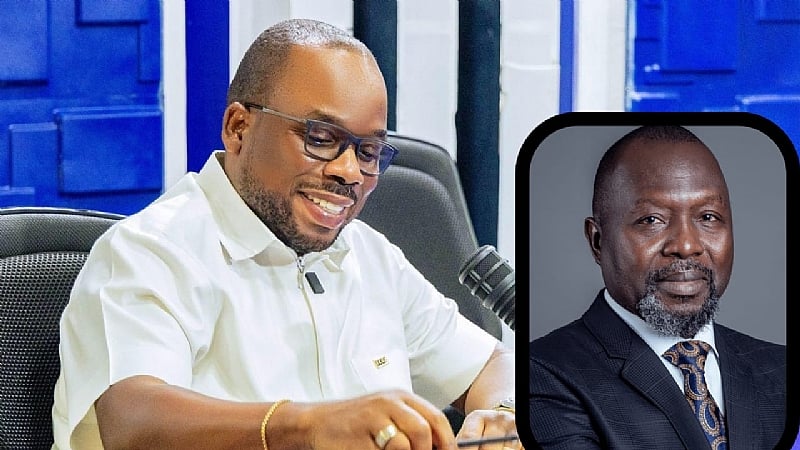The unfolding corruption scandal involving Kwabena Adu-Boahene has ignited a fierce debate in Ghana, with the Attorney-General’s public briefing on the case drawing both support and criticism. Mr. Benjamin Kofi Quashie, Chair of the South African Council of Elders for the National Democratic Congress (NDC), has emerged as a staunch defender of the Attorney-General’s actions, arguing that the briefing was a necessary measure to inform the public and promote transparency. This stance contrasts sharply with the perspective of Adu-Boahene’s legal team, who have accused the Attorney-General of conducting a trial by public opinion and exhibiting political bias. The ensuing clash of opinions has raised complex questions about the balance between public accountability, due process, and the potential impact of public statements on judicial proceedings.
Mr. Quashie contends that the Attorney-General’s briefing served a crucial function in shedding light on the alleged corruption and the government’s efforts to address it. He dismisses the accusations of trial by public opinion, emphasizing that the Attorney-General’s intent was to provide clarity and context to the public, not to prejudice the case. He further argues that the legal team’s criticisms are unfounded and driven by an attempt to deflect attention from the gravity of the allegations against their client. Mr. Quashie’s defense of the Attorney-General underscores the NDC’s position that transparency and accountability are paramount in the fight against corruption and that public officials have a duty to inform the citizenry about such matters.
A key point of contention in this debate revolves around the ethical implications of publicly discussing an ongoing legal case. Adu-Boahene’s lawyers argue that the Attorney-General’s statements could potentially influence the outcome of the trial, violating the principle of presumption of innocence. They maintain that such public pronouncements create a prejudicial atmosphere and could compromise the fairness of the judicial process. Mr. Quashie, however, counters this argument by suggesting that the Attorney-General’s remarks merely stated facts about the accumulated wealth and did not pronounce judgment on Adu-Boahene’s guilt or innocence. He further asserts that if Adu-Boahene is unable to provide a legitimate explanation for the wealth accumulation, the public has a right to be informed about the potential misuse of public funds.
Another dimension of this controversy involves the political undertones surrounding the case. Adu-Boahene’s lawyers have insinuated that the Attorney-General’s actions are politically motivated, suggesting a bias against their client. Mr. Quashie refutes this claim, highlighting instances during the previous administration (NPP) where individuals were arrested in various locations, suggesting a consistent application of accountability measures regardless of political affiliation. He cautions against politicizing the issue and urges a focus on the core issue of alleged corruption and the need to recover misappropriated funds. This exchange highlights the inherent tension between legal proceedings and the political landscape, raising concerns about the potential for political influence on the pursuit of justice.
The debate also touches on the broader implications of legal representation for individuals accused of corruption. Mr. Quashie raises a critical question about the ethical implications of using allegedly ill-gotten gains to finance legal defense. He argues that this creates a perverse incentive, allowing individuals to leverage the proceeds of their alleged crimes to evade accountability. This raises important questions about the fairness of the legal system and the need to prevent individuals from using their financial resources, potentially derived from illegal activities, to obstruct justice.
Finally, Mr. Quashie emphasizes the importance of prioritizing the recovery of stolen assets over simply securing a conviction. He argues that the primary objective should be to recoup the funds for the benefit of the nation, rather than focusing solely on punitive measures. He stresses the long-term consequences of corruption, emphasizing the detrimental impact on national development and the well-being of future generations. This perspective highlights the need for a comprehensive approach to combating corruption, one that not only seeks to punish offenders but also prioritizes the recovery of stolen assets to mitigate the damage inflicted on the public good. The Adu-Boahene case serves as a microcosm of the broader challenges facing Ghana in its efforts to curb corruption and strengthen its democratic institutions. The ongoing debate underscores the complex interplay between legal principles, political dynamics, and the pursuit of justice in a democratic society.


